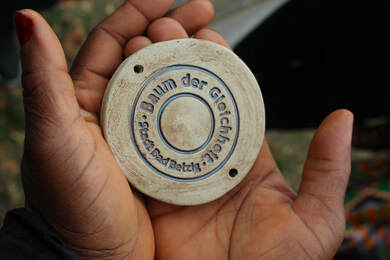The recent uproar surrounding British Conservative Party leader Kemi Badenoch’s comments describing Nigeria as a “living hell” underscores the deep sensitivities tied to national identity and historical truths. While some Nigerians have criticized her for these remarks, it is essential to contextualize and examine their implications without dismissing the reality many have lived through. Rather than focusing on her tone or intentions, we should ask: Is the Nigeria she described still the Nigeria of today?
Nigeria’s Past: A Complex Reality
Kemi Badenoch’s reflections on Nigeria likely stem from personal experiences and historical contexts that resonate with many who have fled the country in search of better opportunities. Her description, though harsh, mirrors the challenges—political instability, corruption, inadequate infrastructure, and social insecurity—that have forced countless Nigerians to seek refuge abroad.
Denying that Nigeria faced significant crises in the past is unproductive. If there were no problems, there would be nothing to fix. For decades, Nigeria struggled with systemic issues that inhibited progress and exacerbated inequality. These challenges are not unique to Nigeria; they are part of the growing pains many nations endure.
A New Era of Acknowledgment and Action
What makes the current administration of President Bola Ahmed Tinubu distinct is its willingness to acknowledge Nigeria’s problems and embark on efforts to address them. Unlike previous administrations that often downplayed or ignored the extent of these issues, Tinubu’s government has set itself apart by:
- Identifying Core Problems: From economic mismanagement to national insecurity, the administration has openly admitted that Nigeria’s challenges are real and urgent.
- Developing Reforms: Efforts to tackle subsidy corruption, revamp infrastructure, and attract foreign investments signal a deliberate approach to fixing deep-seated issues.
- Engaging with Citizens: Acknowledgement fosters trust. By admitting the existence of problems, the administration has laid a foundation for inclusive dialogues on solutions.
Moving Forward: Lessons from the Past
To build a better Nigeria, we must confront our history with honesty. Criticisms like Badenoch’s should not be viewed solely as attacks but as opportunities to reflect. Instead of debating whether her comments were appropriate, let us focus on creating a future where such descriptions no longer apply.
Nigeria’s youth, entrepreneurs, and policymakers are already demonstrating resilience and innovation. From technological advancements to strides in agriculture and education, the nation is making progress. But the road ahead requires unity, accountability, and sustained effort.
A Call to Action
Nigerians in the diaspora and at home must collaborate to amplify the positive changes underway while holding leaders ( local government leaders inclusive) accountable. The question remains: What can each of us contribute to this transformation? Dismissing criticisms without reflection only hampers progress, whereas embracing constructive dialogue fuels growth.
The Nigeria of tomorrow depends on acknowledging and learning from the Nigeria of yesterday. Let us remain committed to this journey of renewal, ensuring that future generations inherit a nation they can celebrate with pride.
